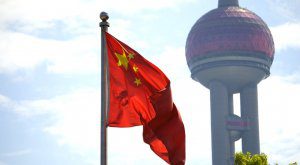 A former Canadian secretary of state for Asia-Pacific points to three issues the new foreign minister must deal with quickly, writes David Kilgour in the Ottawa Citizen.
A former Canadian secretary of state for Asia-Pacific points to three issues the new foreign minister must deal with quickly, writes David Kilgour in the Ottawa Citizen.
By David Kilgour, February 10, 2021
Dear Foreign Minister Garneau,
Canadians generally want Canadian values, including respect for human dignity, to assume a major role in our dealings with Beijing. Nine in 10 of us told a Nanos opinion survey even before the COVID-19 pandemic that we distrusted China’s government. Events since can only have re-enforced this view.
U.S. President Joe Biden appears persuaded that there must be a strong coalition of like-minded allies to confront China on trade, international security and human rights. Canada should be a leader in that initiative, but we must prioritize three related issues as well:
1. The release of the two Michaels
Former Canadian ambassador to China David Mulroney wrote almost two years ago: “We have to secure the freedom of detained Canadians Michael Kovrig and Michael Spavor … we’re also still in the grips of a misguided vision of China, one especially dear to the Canadian governing and business classes, that naïvely embraces almost everything Beijing has on offer … we must finally be open to the idea that, when it comes to engaging Beijing, smarter is better than comprehensive – and less is almost certainly better than more.”
Conventional diplomacy to secure the release of the Michaels has failed. The key is resolving the prosecution of Huawei CFO Meng Wanzhou, and there have already been discussions between her lawyers and American prosecutors about a plea deal. I suggest that, as our new foreign minister, you and Attorney General David Lametti, communicate directly with U.S. Secretary of State Antony J. Blinken and acting Attorney General Monty Wilkinson to explore an overall deal under which Huawei Technologies Ltd. would plead guilty to some charges, and proceedings would be withdrawn against Meng and another unnamed individual.
2. Ending the off-loading of manufacturing jobs to China
Since China’s 2001 admission to the World Trade Organization, about 600,000 manufacturing jobs have been lost across Canada, partly because Beijing doesn’t respect international agreements. Guy Saint-Jacques, another former ambassador to China, says: “(Canada) should put more effort into trade diversification and consider expelling Chinese athletes training in Canada for the 2022 Beijing Winter Olympics … (Canada must) be firm because this is the only language that China understands.”
This probably should include barring all imports to Canada from Xinjiang province, because so many are made by forced Uyghur labour. Importers could be required to rebut the presumption that their products are not the results of forced labour.
3. Respond vigorously to ongoing genocide
The persecution of Turkic peoples in Xinjiang began following Mao Zedong’s military seizure of independent East Turkistan in 1949. The area has since been used as an inhuman laboratory for 47 nuclear explosions from 1964 to 1996, with radiation-caused cancer for many residents. Since 2016, conditions have worsened so much that, increasingly, comparisons are made with the Holocaust.
We know from escaped survivors, leaked official documents and satellite imaging that Beijing is incarcerating many residents in concentration camps, forcing their renunciation of Islam, imposing 24/7 surveillance, torture and organ-pillaging. According to the Australian Policy Institute, at least 80,000 Uyghurs have been forced to work in factories in other regions of China.
In 2017, Xi Jinping began erecting a “re-education” gulag for Muslims similar to that established for Falun Gong practitioners across China after mid-1999. Inmates have been arrested without any pretence of a hearing or appeal. Organ-harvesting from Uyghurs preceded that from Falun Gong (which began in 2001). Responsible governments and businesses worldwide, including Canada, should join the U.S. and Australia in boycotting anyone doing business in Xinjiang.
“Magnitsky” legislation makes it easier for governments, including Canada’s, to impose targeted financial and visa sanctions on human rights-abusing officials in Beijing. The U.S. House of Representatives recently passed the “Uyghur Forced Labor Prevention Act,” now under consideration by the Senate. The bill declares that unless U.S. Customs can verify that goods are not produced using forced labour, they cannot enter the United States. This is the most significant attempt to-date to pressure Beijing over its mass detention of Muslim minorities.
As you settle in as Canada’s new foreign minister, I urge you to pursue new policies with Beijing, both bilaterally and multilaterally.




